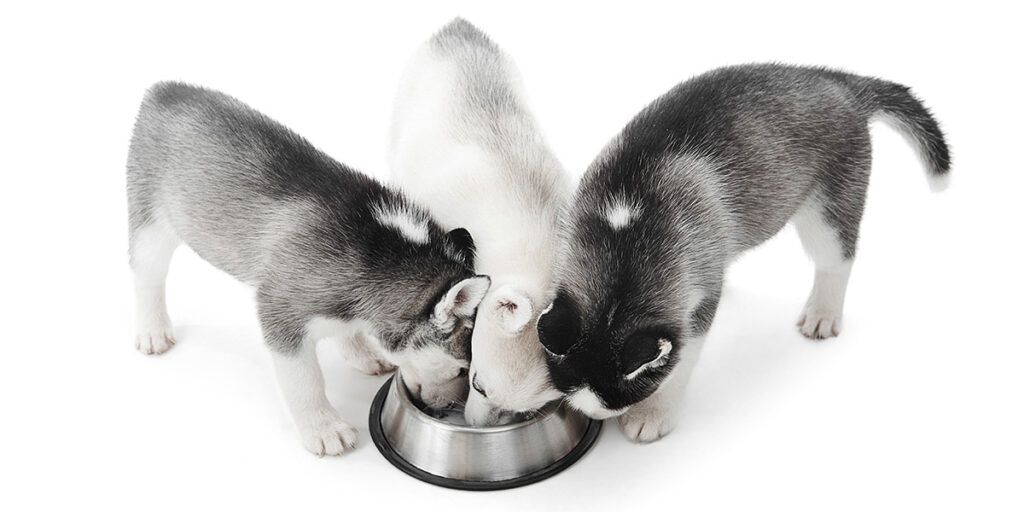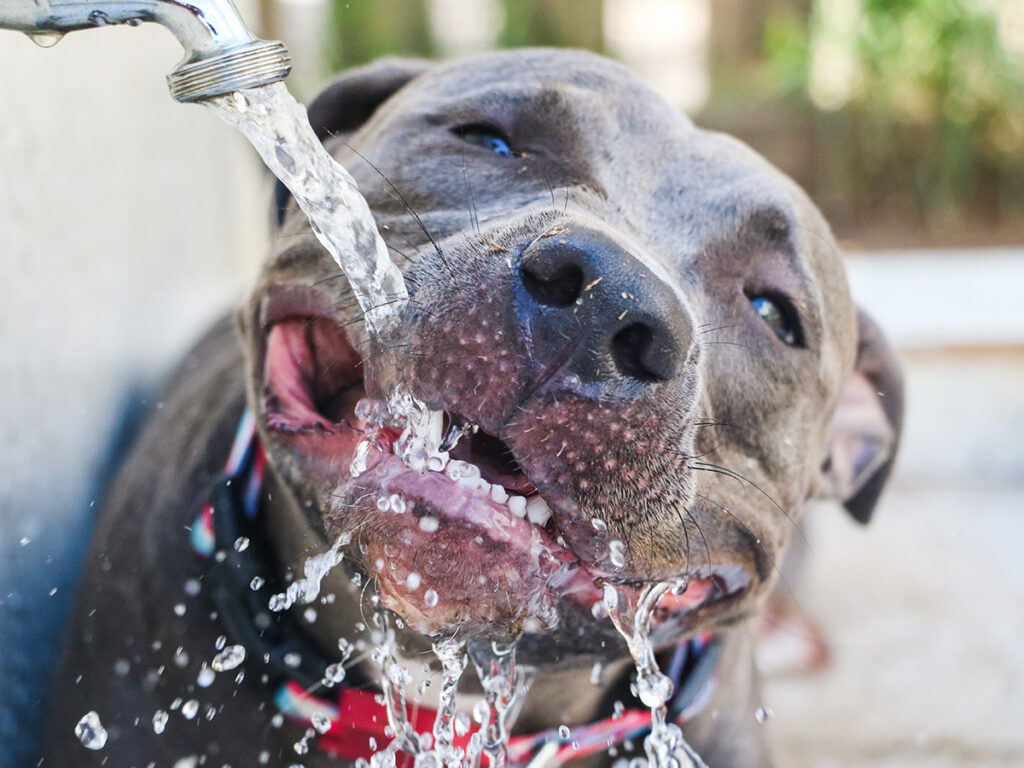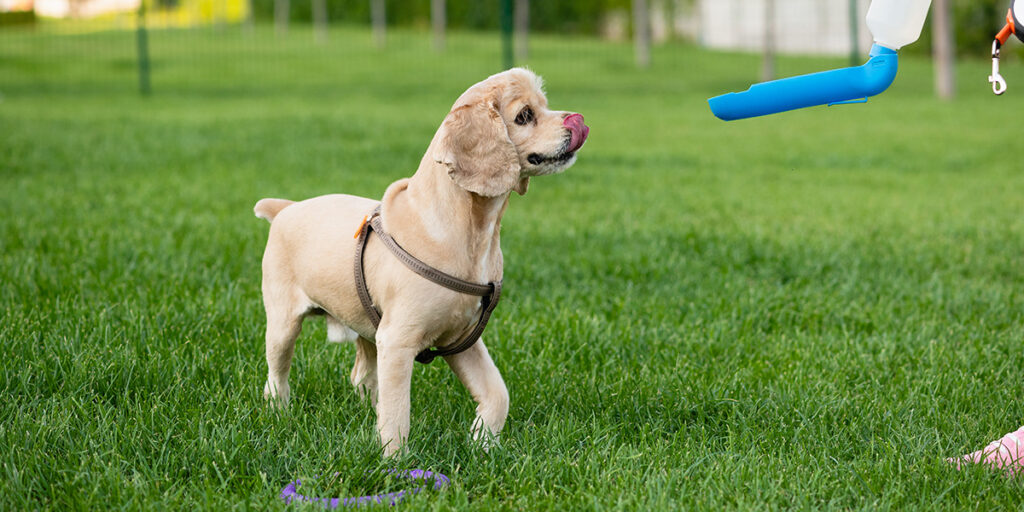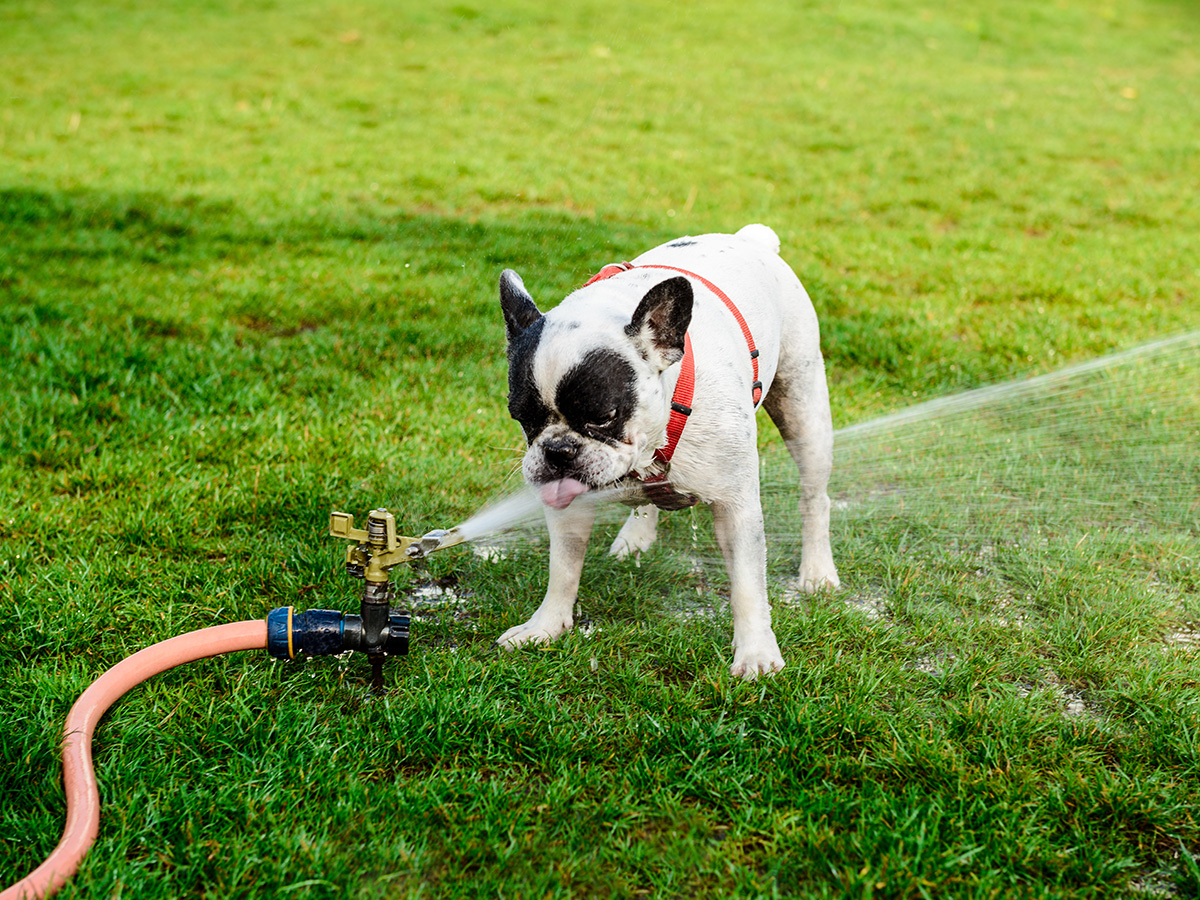Dogs have a habit of drinking plenty of water. So when they are tired after physical activity, we often notice them looking for water to refresh themselves.
However, there are cases where dogs start increasing their water intake significantly without a seemingly apparent reason. In such situations, you may ask yourself:
- Why is my dog drinking so much water?
- Is that habit linked to some problems, or is it a completely normal situation?
- Should I be worried?
Let us resolve your concerns and supply you with every piece of information you could need to act accordingly.
Let’s dive right in!
Table of Contents
What Is the Cause of High-Level Water Intake?
There can be many reasons for the increase in water intake, such as:
#1 – Injury or sickness
It is normal for dogs to drink a lot of liquid when they are injured, sick, or very hot. When they feel under the weather, their body temperature increases, and they need more fluids to regulate it.
#2 – High Temperatures
By exposing our dogs to high temperatures, the dog’s body loses more water. Therefore, increased water intake during high temperatures is desirable for a dog’s body to function properly.
#3 – Nursing
Female dogs also need lots of water when they are nursing.
This is because their milk contains large amounts of fluid, and it needs to be replenished at all times to ensure that the puppies can continue to eat and grow well.

#4 – Exhaustion
Dogs also need lots of liquid if we exercise them a lot, especially in warm or humid weather.
Also, keep in mind that it is expected they are thirsty after exercise in the afternoon because their body temperature increases, so more water is needed to regulate it.
It is important to note that factors such as temperature, period of the day, and the level of physical activity play a crucial role in a dog’s need for water.
All of these factors can cause dehydration if we do not react in time. That is why it is important to determine the proper time and intensity of training for our dog.
#5 – Severe Diseases
Excessive water intake can most often lead to two diseases:
- diabetes;
- and kidney disease.
Diabetes & Increased Water Intake in Dogs
Statistics show that diabetes occurs in one in three hundred dogs.
Diabetes occurs when the level of insulin in the blood of your dog is below the standard limit. The role of insulin will be easier to understand if we look at it as a means of removing glucose from your dog’s body.
Suppose the situation is such that the insulin level is low. In that case, it means that there will be an accumulation of glucose in the blood.
The accumulation of glucose disrupts normal kidney function. Therefore a large amount of glucose is excreted in the urine in these cases.
This could be the reason why your dog drinks too much water as a result of the increased need for urination.
Kidney Disease & Increased Water Intake in Dogs
The role of the kidneys in our dog’s body is to store and excrete water.
Holding and excretion of water are some of the functions in the complex system that maintains the optimal level of hydration in your dog’s body.
When these functions are impaired, there is, once again, a need for frequent urination. As a result, your dog drinks as much water as possible to avoid dehydration.
What are the Signs of an Excessive Water Intake?

The first sign that your dog is drinking too much water may be that their water bowl gets empty incredibly fast and too often. This point may sound obvious but, unless you are paying particular attention, you may not even notice how many times a day you refill the bowl.
The secondary signs you can look out for are thirstiness and excessive urination. If your dog seems to be looking for water more often than usual, it may be a red flag. Also, frequent trips outside to pee could be a clear sign that your dog’s water intake is up.
Should You Be Worried?
In all situations, it is best to stay calm and assess the situation properly before panicking. However, don’t take any unusual behavior from your dog for granted.
In extreme cases, if your dog’s water intake is too high, it can negatively affect the kidneys, leading to renal failure. This will be manifested by weight loss and vomiting as well.
Let’s see what your course of action should be.
What Should You Do?
The first thing you need to do when noticing high water intake levels is to determine the cause and take appropriate steps.
Suppose there are no known medical reasons for excessive drinking or urination. In that case, you must find out why this has happened and take measures accordingly.
If your dog is drinking too much water and you suspect that it may be related to any of the issues we listed above problems, we recommend consulting a veterinarian as soon as possible. They will perform an examination and give an appropriate diagnosis based on their findings.
When it comes down to all health concerns, going to the vet is always your best choice.
How to Manage Excessive Water Intake?

Let’s take a look at the best things you can do at home to help your dog deal with the increased thirst.
#1 – Supply enough food and water.
One of the most important things you must do when your dog drinks too much water is to ensure proper hydration. There is obviously a reason why your dog may be dehydrated, and you need to address it.
Make sure you provide them with enough food and giving them plenty of fresh, clean drinking water at all times during the day.
#2 – Keep track of the temperature.
You should also pay attention to the temperature of your environment. The higher it is, the more water your dog will need to maintain a normal body temperature and avoid dehydration. This way, we can reduce trips outside for urination as well as excessive thirstiness.
Hot weather can be incredibly dangerous, so pay attention to the forecast and prepare yourself on time!
#3 – Don’t leave your pet for too long.
Likewise, it’s important not to leave your pet for long periods without being able to drink or go outside.
This advice is even more critical when your dog is suffering from a particular medical condition, as you could make the situation a lot worse by not giving them proper care.
#4 – Avoid exercise under challenging conditions.
In addition, try not to exercise your dog in hot and humid weather so that they can avoid getting thirsty. If you do exercise them on these days, then make sure that it is done during early morning hours when it’s cooler outside.
#5 – Seek professional help.
As always, we advise consulting with your vet to determine a more specific course of action that will help your dog get better in no time!
Conclusion
A dog’s increased need for water isn’t such a harmless thing. As it turns out, it can be an indicator of a bigger problem.
Pay attention to certain factors that can lead to dehydration. By reacting in time, you will prevent the appearance of some diseases. Prevention is always better than cure.
Now you’ve learned something new, and it’s time to share your impressions with us.
Have you ever noticed that your dog drinks a lot of water? What was the cause of such behavior?
Please share your experiences with us in the comments down below!
See you in the next post!
